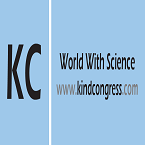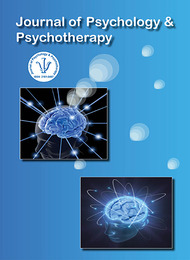Theme: Enhancing Mental Health: Building Resilience and Well-being
Mental Health 2024
Dear distinguished participants,
On behalf of the organizing committee of the 12th International Conference on Mental Health and Human Resilience, it is with immense pleasure that I extend a warm welcome to all attendees, speakers, and guests. We are delighted to have you join us for this prestigious event, which promises to be an enriching experience in the realm of mental health and human resilience.
The Mental Health 2024 is a gathering of esteemed professionals, researchers, practitioners, and advocates from across the globe that are committed to advancing the field of mental health and promoting resilience in individuals and communities. This conference serves as a platform for sharing knowledge, exchanging ideas, and exploring innovative strategies that can shape the future of mental health care.
As we gather for the 12th edition of this conference, it is crucial to acknowledge the significant challenges faced by individuals, families, and societies in maintaining mental health and resilience. The past year has presented us with unprecedented circumstances, emphasizing the importance of mental health support and resilience-building initiatives.
Once again, a warm welcome to the Mental Health 2024 Conference. We are excited to embark on this journey of knowledge exchange, collaboration, and growth. Together, let us strive to promote mental well-being, strengthen resilience, and create a world where every individual can thrive.
Sincerely,
[Organizing Committee Member]
Conference Series is one among the major open access platforms which organizes a series of 3000+ International Events with 800+ international conferences every year across USA, Europe, & Asia. With a great support from 1000+Scientific societies, world renowned scientist, Noble Laureates, scholars and students, we have reached 25 million professionals and corporate entities all over the globe.
With a great pleasure we proudly present “12th International Conference on Mental Health and Human Resilience” to be held during June 13-14, 2024 in Rome, Italy. Conference mainly focuses on Psychiatry and Mental Health disorders and therapies. International Conference on Psychiatry and Mental Health meeting dedicated to Psychiatrists and Psychological researchers with the theme “Enhancing Mental Health: Building Resilience and Well-being".
12th International Conference on Mental Health and Human Resilience is an annual meeting of renowned Psychiatrists as well as Psychological committees. This conference is primarily focused to discuss the future of the Psychiatry, Psychological Syndromes, advancements, therapy and issues we are facing in the field of Psychiatry with mutual collaborations and organizational development.
Why to attend?
Our aim is to make 12th International Conference on Mental Health and Human Resilience a great success with world class talks & discussions by top Psychiatrists as well as Psychological committees. With a great support from distinguished academicians in the field of Psychology and Psychiatry, Public Health professionals, Mental Health Professionals, NGO Workers, scientists, academic scientists, industry researchers, Psychiatry researchers, we are featuring many exciting academic programs including multiple panels, workshops, affinity group lunches, paper presentations, and scientific sessions by reputed psychiatrists from all over the world which makes our conference the best of other psychiatry conferences.
International Conference on Mental Health Highlights includes:
- Keynote sessions by eminent and renowned researchers
- Outstanding speaker sessions
- International accredited certificates
- All accepted abstracts for this Conference will be published in the respective International Journals
- Abstracts will be published with DOI number by Cross Ref
- Registrants will get 75% abatement on manuscript publication fees
- Speaker and Abstract pages created in Google under your name will attract worldwide acknowledgment to your profile and research and it will be visible to 35K researchers across the globe
- Special recognition for Young Researchers
- One on One Meeting with top Psychiatrists
- Symposia and Workshop sessions by distinguished Psychiatrists
- Meetings with Top Industrial Representations
- Special awards for Speakers and Poster Presentations
- Group Registration benefits
Track: 1 Mental Health
Mental health disorder includes one’s emotional, social and psychological well-being. It directly effects on how we think, act. Mental health is very important in every aspects of life from childhood to adolescence through adulthood as it determines how an individual handle stress, relation to others and make choice. In the span of life, an individual’s mood, thinking and behaviour is affected if the individual experience mental health problems. There are many factors involved behind experiencing this disorder. Biological factors, life experience such as abuse or trauma, family history having mental health problems. There are more than 200 classified forms of mental illness. Some of the common disorders are bipolar disorder, schizophrenia, anxiety disorder and dementia.
- Adult/children counselling
- Cognitive Behaviour therapy
- Multiple personality disorders
- Obsessive-Compulsive Personality Disorder (OCPD)
- Advanced treatments in mental illness
- Gender differentiation
Relevant societies: The Japanese Society of Psychiatry and Neurology; American Neurological Association (ANA); World Federation of Neurology; California Neurology Society (CNS); European Paediatric Neurology Society (EPNS); Neurological Society of India; Society for Neuroscience; Child Neurology Society; Bulgarian Society of Neurology; The British Neuroscience Association; International Youth Neuroscience Association; Canadian Association for Neuroscience; British Association for Cognitive Neuroscience (BACN); Austrian Neuroscience Association (ANA); Florida Society of Neurology; Asia federation of Psychiatric Association (AFPA)
Track: 2 Human Resilience
How do an individual deal with difficult events like death of loved ones, serious illness, losing a job or some other traumatic events? Where many people react with a flood of strong emotions and other generally adapt well to life changing situation and stressful conditions. It involves resilience. Resilience is the process of bouncing back through well adaptation from difficult experience like trauma, tragedy, threats or stress.
- Approaches to resilience
- Resilience and ability
- Psychological resilience
- Biological models of resilience
Relevant societies: The Japanese Society of Psychiatry and Neurology; American Neurological Association (ANA); World Federation of Neurology; California Neurology Society (CNS); European Paediatric Neurology Society (EPNS); Neurological Society of India; Society for Neuroscience; Child Neurology Society; Bulgarian Society of Neurology; The British Neuroscience Association; International Youth Neuroscience Association; Canadian Association for Neuroscience; British Association for Cognitive Neuroscience (BACN); Austrian Neuroscience Association (ANA); Florida Society of Neurology; Asia federation of Psychiatric Association (AFPA)
Track: 3 Clinical Psychology
Clinical psychology is a branch of psychology which concerns with practical application of research methodologies and involved in the diagnosis and treatment of mental disorders. The professionals, clinical psychologists classify their basic activities in three main headings, which are assessment, treatment and research. Clinical psychologists are specialized in behaviour therapy, psychoanalysis, group therapy & family therapy. Research is very crucial in clinical psychology as their training in experimental clinical trials and statistical procedures and hence clinical psychologists are very important participants in the studies of mental health care.
- Counselling psychology
- Applied psychology
- Experimental psychology
- Psychological intervention
Relevant societies: The Japanese Society of Psychiatry and Neurology; American Neurological Association (ANA); World Federation of Neurology; California Neurology Society (CNS); European Paediatric Neurology Society (EPNS); Neurological Society of India; Society for Neuroscience; Child Neurology Society; Bulgarian Society of Neurology; The British Neuroscience Association; International Youth Neuroscience Association; Canadian Association for Neuroscience; British Association for Cognitive Neuroscience (BACN); Austrian Neuroscience Association (ANA); Florida Society of Neurology; Asia federation of Psychiatric Association (AFPA)
Track: 4 Psychology & Psychiatry
Psychology and psychiatry are a scientific discipline which deals with mental states and behaviour. It is a broad discipline includes many sub-fields such as human development, sports, clinical, social behaviour and cognitive process.
- Social psychology
- Geriatric psychiatry
- Neurocognitive psychiatry
- Emergency psychiatry
- Cognitive psychology
- Behavioral psychology
Relevant societies: The Japanese Society of Psychiatry and Neurology; American Neurological Association (ANA); World Federation of Neurology; California Neurology Society (CNS); European Paediatric Neurology Society (EPNS); Neurological Society of India; Society for Neuroscience; Child Neurology Society; Bulgarian Society of Neurology; The British Neuroscience Association; International Youth Neuroscience Association; Canadian Association for Neuroscience; British Association for Cognitive Neuroscience (BACN); Austrian Neuroscience Association (ANA); Florida Society of Neurology; Asia federation of Psychiatric Association (AFPA)
Track: 5 Child Abuse
Child abuse is just not the physical violence directed at a child. Child abuse can occur in home and abuser is in the form of their parents, caregiver and sometimes they are abused by other adults to whom they are dependent like teachers, nursery workers. Abuses on child is not every time intentional but if their parents and caregivers are no longer caring for the child then this results into dysfunctional behaviour and abuse.
- Abusive minds
- Parent child interaction therapy
- Domestic violence
- Suicidal tendency
- Victims of sexual abuse
- Child maltreatment
- Child protection services
- Child homicide
Relevant societies: The Japanese Society of Psychiatry and Neurology; American Neurological Association (ANA); World Federation of Neurology; California Neurology Society (CNS); European Paediatric Neurology Society (EPNS); Neurological Society of India; Society for Neuroscience; Child Neurology Society; Bulgarian Society of Neurology; The British Neuroscience Association; International Youth Neuroscience Association; Canadian Association for Neuroscience; British Association for Cognitive Neuroscience (BACN); Austrian Neuroscience Association (ANA); Florida Society of Neurology; Asia federation of Psychiatric Association (AFPA)
Track: 6 Women’s Mental Health
Research suggests that women are about 40% more likely to develop depression than men. They are also twice as men to develop PTSD (Post Traumatic Stress Disorder) and about 10% of women developed after traumatic event comparing to only 4% of men. Mental Disorders affect men and women differently. There are some disorders are common like depression and anxiety. Women experience mental disorder symptoms of mental disorder at the time of their hormonal change like perinatal depression, premenstrual dysphoric disorder and perimenopause related depression and during pregnancy.
- Menopause/pregnancy related psychiatric disorders
- Anxiety
- Infertility/perinatal loss
- Post-Traumatic Stress Disorder (PTSD)
- Gender specific risk factors
- Sexual discrimination
- Psychological distress with gynecological disorders
Relevant societies: The Japanese Society of Psychiatry and Neurology; American Neurological Association (ANA); World Federation of Neurology; California Neurology Society (CNS); European Paediatric Neurology Society (EPNS); Neurological Society of India; Society for Neuroscience; Child Neurology Society; Bulgarian Society of Neurology; The British Neuroscience Association; International Youth Neuroscience Association; Canadian Association for Neuroscience; British Association for Cognitive Neuroscience (BACN); Austrian Neuroscience Association (ANA); Florida Society of Neurology; Asia federation of Psychiatric Association (AFPA)
Track: 7 Child and Adolescent Psychiatry
Child and adolescent psychiatry deals in the treatment of mental health disorders of children aged up to 18 years. As many adult mental health disorders originate in childhood and these behavioural problems linked with difficulties throughout adulthood, so child and adolescent psychiatry is very crucial branch as it involves in detection and early treatment of mental health disorders.
- Anxiety disorders
- Autism Spectrum Disorder (ASD)
- Social impact
- Attention-Deficit/Hyperactivity Disorder (ADHD)
- Aggression and violence
- Adolescent counselling
- Teenage depression
- Child abuse and negligence
- Emotional and Behavioural disorders
Relevant societies: The Japanese Society of Psychiatry and Neurology; American Neurological Association (ANA); World Federation of Neurology; California Neurology Society (CNS); European Paediatric Neurology Society (EPNS); Neurological Society of India; Society for Neuroscience; Child Neurology Society; Bulgarian Society of Neurology; The British Neuroscience Association; International Youth Neuroscience Association; Canadian Association for Neuroscience; British Association for Cognitive Neuroscience (BACN); Austrian Neuroscience Association (ANA); Florida Society of Neurology; Asia federation of Psychiatric Association (AFPA)
Track: 8 Adult and Geriatric Psychiatry
Geriatric psychiatry is a sub speciality of psychiatry which deals with the study, prevention and treatment of mental disorders in human with old age. It emphasizes the psychological and biological aspects of normal ageing.
- Alzheimer’s disease
- Depression
- Geriatric counselling
- Dementia
- Geriatric nursing
Relevant societies: The Japanese Society of Psychiatry and Neurology; American Neurological Association (ANA); World Federation of Neurology; California Neurology Society (CNS); European Paediatric Neurology Society (EPNS); Neurological Society of India; Society for Neuroscience; Child Neurology Society; Bulgarian Society of Neurology; The British Neuroscience Association; International Youth Neuroscience Association; Canadian Association for Neuroscience; British Association for Cognitive Neuroscience (BACN); Austrian Neuroscience Association (ANA); Florida Society of Neurology; Asia federation of Psychiatric Association (AFPA)
Track: 9 Addictions and Mental Health
Mental health difficulties like depression, anxiety, PTSD, stress often leads an individual towards substance abuse and using these substances often worsen the mental health. Mental illness and substance abuse often occur together, and it is called Dual Diagnosis or Co-Occurring Disorder. Following are the mental health problems occur frequently with addiction. Anxiety, Attention Deficit Hyperactivity Disorder (ADHD), Post-Traumatic Stress Disorder (PTSD), Eating Disorder, Bipolar Disorder, Schizophrenia and Personality Disorders.
- Alcohol addiction
- Opioid dependence
- Cognitive impairment
- Drug use and toxicity
- Hallucinogens abuse
- Addiction and brain
Relevant societies: The Japanese Society of Psychiatry and Neurology; American Neurological Association (ANA); World Federation of Neurology; California Neurology Society (CNS); European Paediatric Neurology Society (EPNS); Neurological Society of India; Society for Neuroscience; Child Neurology Society; Bulgarian Society of Neurology; The British Neuroscience Association; International Youth Neuroscience Association; Canadian Association for Neuroscience; British Association for Cognitive Neuroscience (BACN); Austrian Neuroscience Association (ANA); Florida Society of Neurology; Asia federation of Psychiatric Association (AFPA)
Track: 10 Neuropsychiatric disorders
Neuropsychiatric disorders are organic brain diseases with psychiatric symptoms, as in Alzheimer’s and Parkinson’s diseases, that cause cognitive impairment, including dementia, amnesic syndrome, and personality–behavioral changes. As a clinical science, neuropsychiatry aims to explore the complex interrelationship between behavior and brain function from a variety of perspectives, including those of psychology, neurology, and psychiatry. This concise and updated monograph comprises the latest findings in the field and includes chapters on delusional symptoms, mood disorders and neurotic symptoms, cognitive impairment, behavioral and personality changes, and recently, cerebral alterations revealed in PTSD patients and in endogenous psychoses through neuroimaging and neuropathology
Relevant societies: The Japanese Society of Psychiatry and Neurology; American Neurological Association (ANA); World Federation of Neurology; California Neurology Society (CNS); European Paediatric Neurology Society (EPNS); Neurological Society of India; Society for Neuroscience; Child Neurology Society; Bulgarian Society of Neurology; The British Neuroscience Association; International Youth Neuroscience Association; Canadian Association for Neuroscience; British Association for Cognitive Neuroscience (BACN); Austrian Neuroscience Association (ANA); Florida Society of Neurology; Asia federation of Psychiatric Association (AFPA)
Track: 11 Psychological Disorders
The term psychological disorder is more frequently known as mental disorders. Mental disorders are the pattern of psychological symptoms that impacts in multiple areas throughout the life span. Some of the psychological disorders are: Neurodevelopmental disorders, which include intellectual disability, global developmental delay, communication disorders, autism spectrum disorder, and attention deficit hyperactivity disorder.
- Personality disorders
- Schizophrenia
- Major depressive disorders
- Sleep disorders
- Eating disorder
- Bipolar disorders
Relevant societies: The Japanese Society of Psychiatry and Neurology; American Neurological Association (ANA); World Federation of Neurology; California Neurology Society (CNS); European Paediatric Neurology Society (EPNS); Neurological Society of India; Society for Neuroscience; Child Neurology Society; Bulgarian Society of Neurology; The British Neuroscience Association; International Youth Neuroscience Association; Canadian Association for Neuroscience; British Association for Cognitive Neuroscience (BACN); Austrian Neuroscience Association (ANA); Florida Society of Neurology; Asia federation of Psychiatric Association (AFPA)
Track: 12 Psychosomatic Disorders
Psychosomatic disorder is mainly used to describe a physical disease thought to be caused or to make even worse by several mental factors. Several factors can play role in psychosomatic disorders such as personality traits, family influences, genetic or environmental factors, learned behaviour and more.
- Electro convulsive therapy
- Hypnosis
- Drug abreaction
- Group therapy
- Supportive psychotherapy
- Psychoanalysis
Relevant societies: The Japanese Society of Psychiatry and Neurology; American Neurological Association (ANA); World Federation of Neurology; California Neurology Society (CNS); European Paediatric Neurology Society (EPNS); Neurological Society of India; Society for Neuroscience; Child Neurology Society; Bulgarian Society of Neurology; The British Neuroscience Association; International Youth Neuroscience Association; Canadian Association for Neuroscience; British Association for Cognitive Neuroscience (BACN); Austrian Neuroscience Association (ANA); Florida Society of Neurology; Asia federation of Psychiatric Association (AFPA)
Track: 13 Stress, Anxiety and Depression
Stress is a feeling of physical and emotional tension. Despite being unpleasant, it is not a disease but there are connections between stress and mental health problem like depression, anxiety, PTSD and psychosis.
- Acute stress disorders
- Insomnia
- Social anxiety disorders
- Persistent depressive disorders
Relevant societies: The Japanese Society of Psychiatry and Neurology; American Neurological Association (ANA); World Federation of Neurology; California Neurology Society (CNS); European Paediatric Neurology Society (EPNS); Neurological Society of India; Society for Neuroscience; Child Neurology Society; Bulgarian Society of Neurology; The British Neuroscience Association; International Youth Neuroscience Association; Canadian Association for Neuroscience; British Association for Cognitive Neuroscience (BACN); Austrian Neuroscience Association (ANA); Florida Society of Neurology; Asia federation of Psychiatric Association (AFPA)
Track: 14 Mental Health Awareness
Mental health affects approximately 19% of the adult population, 47% in children and 17% in children every year but half of the affected individual gets treatment. Untreated individual witness higher medical expenses, several associated problems, poorer performance in work and in school, less employment opportunity and increased risk of suicide.
- Psychotherapy
- Advanced treatments in mental illness
- Licensed Professional Counselling (LPC)
- Mental health education
- Alternative therapies
- Licensed Marriage and Family Therapy (LMFT)
- Licensed Clinical Alcohol & Drug Abuse Counselling (LCADAC)
Relevant societies: The Japanese Society of Psychiatry and Neurology; American Neurological Association (ANA); World Federation of Neurology; California Neurology Society (CNS); European Paediatric Neurology Society (EPNS); Neurological Society of India; Society for Neuroscience; Child Neurology Society; Bulgarian Society of Neurology; The British Neuroscience Association; International Youth Neuroscience Association; Canadian Association for Neuroscience; British Association for Cognitive Neuroscience (BACN); Austrian Neuroscience Association (ANA); Florida Society of Neurology; Asia federation of Psychiatric Association (AFPA)
Track: 15 Psychiatric Rehabilitation
The mental health disorder treatment has two aspects. One of it is rehabilitation. Mental disorder requires medication along with the other forms of treatment. The treatment type depends on their diagnosis, the severity of disorder and individual’s physical and emotional state. Psychiatric rehabilitation is an aspect of treatment which helps the person to return in the optimum level of functioning to lead a normal life. This can be brought by providing medical, psychological and social input though there are no strict boundary between treatment and rehabilitation.
- Drug rehabilitation
- Motivational interviewing
- Brain injury
- Positive psychology management
- Individual Placement and Support (IPS)
- Medication and psychotherapy
- Juvenile mental health & rehabilitation
- Criminal recidivism & rehabilitation program
Relevant societies: The Japanese Society of Psychiatry and Neurology; American Neurological Association (ANA); World Federation of Neurology; California Neurology Society (CNS); European Paediatric Neurology Society (EPNS); Neurological Society of India; Society for Neuroscience; Child Neurology Society; Bulgarian Society of Neurology; The British Neuroscience Association; International Youth Neuroscience Association; Canadian Association for Neuroscience; British Association for Cognitive Neuroscience (BACN); Austrian Neuroscience Association (ANA); Florida Society of Neurology; Asia federation of Psychiatric Association (AFPA)
Track: 16 Psychiatric and Mental Health Nursing
Psychiatric mental health nursing is a speciality in nursing. Mental health psychiatric registered nurses work with individuals, families, groups and communities, assessing their mental health needs. People do not generally consider mental illness as true medical conditions, but they are more distressing than other body diseases. The psychiatric nurses specialize in mental health helps patients to overcome in their psychiatric disorder and the stigma associated with it.
- Nursing and mental health
- Nursing education in mental health
- Psychiatric health nursing practice
Relevant societies: The Japanese Society of Psychiatry and Neurology; American Neurological Association (ANA); World Federation of Neurology; California Neurology Society (CNS); European Paediatric Neurology Society (EPNS); Neurological Society of India; Society for Neuroscience; Child Neurology Society; Bulgarian Society of Neurology; The British Neuroscience Association; International Youth Neuroscience Association; Canadian Association for Neuroscience; British Association for Cognitive Neuroscience (BACN); Austrian Neuroscience Association (ANA); Florida Society of Neurology; Asia federation of Psychiatric Association (AFPA)
Track: 17 Psychiatry and Psychology Practices
Psychiatrists are trained medical doctors, they can prescribe medications, and they spend much of their time with patients on medication management as a course of treatment. Psychologists focus extensively on psychotherapy and treating emotional and mental suffering in patients with behavioural intervention.
- Hypnotherapy
- Transcranial Magnetic Stimulation (TMS) therapy
- Interpersonal therapy
- Acupuncture therapy
- Psychotherapy
- Psychoanalysis and psychodynamic therapy
Relevant societies: The Japanese Society of Psychiatry and Neurology; American Neurological Association (ANA); World Federation of Neurology; California Neurology Society (CNS); European Paediatric Neurology Society (EPNS); Neurological Society of India; Society for Neuroscience; Child Neurology Society; Bulgarian Society of Neurology; The British Neuroscience Association; International Youth Neuroscience Association; Canadian Association for Neuroscience; British Association for Cognitive Neuroscience (BACN); Austrian Neuroscience Association (ANA); Florida Society of Neurology; Asia federation of Psychiatric Association (AFPA)
Track: 18 Psychopharmacology Role: Mental Health
Psychopharmacology is the study of the changes in mood due to substance abuse or drug induces. These drugs can be obtained from natural sources as well as through chemical synthesis in laboratory. These drugs interact with the nervous system and make changes in physiological or psychological receptors.
- Modern psychopharmacology
- Psychopharmacological substances
- Psychoactive drugs
- Psychopharmacologic medication
- Placebo medications
Relevant societies: The Japanese Society of Psychiatry and Neurology; American Neurological Association (ANA); World Federation of Neurology; California Neurology Society (CNS); European Paediatric Neurology Society (EPNS); Neurological Society of India; Society for Neuroscience; Child Neurology Society; Bulgarian Society of Neurology; The British Neuroscience Association; International Youth Neuroscience Association; Canadian Association for Neuroscience; British Association for Cognitive Neuroscience (BACN); Austrian Neuroscience Association (ANA); Florida Society of Neurology; Asia federation of Psychiatric Association (AFPA)
Track: 19 Mindfulness Yoga & Medication
Mindfulness is an integrative approach that help individual to manage their thoughts and mental health.
- Psychoactive medication
- Anti-psychotics medication
- Mindfulness techniques and training
Relevant societies: The Japanese Society of Psychiatry and Neurology; American Neurological Association (ANA); World Federation of Neurology; California Neurology Society (CNS); European Paediatric Neurology Society (EPNS); Neurological Society of India; Society for Neuroscience; Child Neurology Society; Bulgarian Society of Neurology; The British Neuroscience Association; International Youth Neuroscience Association; Canadian Association for Neuroscience; British Association for Cognitive Neuroscience (BACN); Austrian Neuroscience Association (ANA); Florida Society of Neurology; Asia federation of Psychiatric Association (AFPA)
Track: 20 Psychopathology
Psychopathology, also called abnormal psychology, the study of mental disorders and unusual or maladaptive behaviours. An understanding of the genesis of mental disorders is critical to mental health professionals in psychiatry, psychology, and social work. The developmental psychopathology perspective represents an integration of several distinct scientific disciplines, including genetics, neuroscience, and psychiatry, as well as experimental, clinical, and developmental psychology. Developmental psychopathology has emerged as a leading scientific framework for identifying the dynamic exchange processes that influence both adaptive and maladaptive behaviour
Relevant societies: The Japanese Society of Psychiatry and Neurology; American Neurological Association (ANA); World Federation of Neurology; California Neurology Society (CNS); European Paediatric Neurology Society (EPNS); Neurological Society of India; Society for Neuroscience; Child Neurology Society; Bulgarian Society of Neurology; The British Neuroscience Association; International Youth Neuroscience Association; Canadian Association for Neuroscience; British Association for Cognitive Neuroscience (BACN); Austrian Neuroscience Association (ANA); Florida Society of Neurology; Asia federation of Psychiatric Association (AFPA)
Track: 21 Youth mental health
Adolescence is a crucial period for developing social and emotional habits important for mental well-being. These include adopting healthy sleep patterns; exercising regularly; developing coping, problem-solving, and interpersonal skills; and learning to manage emotions. Protective and supportive environments in the family, at school and in the wider community are important. Multiple factors affect mental health. The more risk factors adolescents are exposed to, the greater the potential impact on their mental health. Factors that can contribute to stress during adolescence include exposure to adversity, pressure to conform to peers and exploration of identity. Media influence and gender norms can exacerbate the disparity between an adolescent’s lived reality and their perceptions or aspirations for the future
Relevant societies: The Japanese Society of Psychiatry and Neurology; American Neurological Association (ANA); World Federation of Neurology; California Neurology Society (CNS); European Paediatric Neurology Society (EPNS); Neurological Society of India; Society for Neuroscience; Child Neurology Society; Bulgarian Society of Neurology; The British Neuroscience Association; International Youth Neuroscience Association; Canadian Association for Neuroscience; British Association for Cognitive Neuroscience (BACN); Austrian Neuroscience Association (ANA); Florida Society of Neurology; Asia federation of Psychiatric Association (AFPA)
Track: 22 Digital psychiatry
Mental health technologies used by professionals as an adjunct to mainstream clinical practices include email, SMS, virtual reality, computer programs, blogs, social networks, the telephone, video conferencing, computer games, instant messaging and podcasts. Similarly, although digital mental health technologies hold potential for increasing the autonomy and sense of empowerment of young adults, they also raise the risk of diminishing patient autonomy by increasing the risk of digital addiction and manipulation. This recovery management involves numerous aspects, including further education, record-keeping, medication reminders, progress monitoring, and more. Technology provides tools that help many manage important daily tasks that help improve and maintain their mental health
Relevant societies: The Japanese Society of Psychiatry and Neurology; American Neurological Association (ANA); World Federation of Neurology; California Neurology Society (CNS); European Paediatric Neurology Society (EPNS); Neurological Society of India; Society for Neuroscience; Child Neurology Society; Bulgarian Society of Neurology; The British Neuroscience Association; International Youth Neuroscience Association; Canadian Association for Neuroscience; British Association for Cognitive Neuroscience (BACN); Austrian Neuroscience Association (ANA); Florida Society of Neurology; Asia federation of Psychiatric Association (AFPA)
Mental Health Research & funding opportunities globally:
Mental disorders represent 14% of disease around the world; yet they get a normal of just 50% of one percent (0.5%) of wellbeing spending in low-salary nations (WHO ATLAS 2011). In addition, seventy five percent (73%) of the cash spent on emotional wellness by national governments is spent on psychiatric clinics, instead of on community care.
The United States was the biggest maker of psychological well-being research, with 36 percent of all papers having no less than one US-based author. The United States was likewise home to 31 percent of the research funders distinguished, with the most unmistakable being associations and offices inside the national government. The National Institutes of Health (NIH) and the National Institute of Mental Health (NIMH) were the main two funders by and large, yet other research funders, for example, the National Institute on Drug Abuse (NIDA), the National Institute on Aging, and the Department of Veterans Affairs, likewise included in the main ten worldwide funders.
Despite government funders supporting the most papers (being referred to on 67 percent of the papers with subsidizing affirmations), we found that charities, foundations, and not-for-profit organizations were recognized as the division with the biggest number of research funders, speaking to 39 percent of the funders recognized by scientists in general. This segment was a blend of little and new charities and foundations and larger, more well-established organizations, for example, the Brain and Behaviour Research Foundation (charity in the United States) and the Welcome Trust (in the United Kingdom).
A portion of the bigger associations did not have emotional well-being as their essential financing zone however was all the while subsidizing significant measures of psychological well-being research. One such case was the British Heart Foundation, charity in the United Kingdom that intends to handle coronary illness. Curiously, psychological wellness inquiries about papers that recognized the help of philanthropies, establishments, and not-revenue driven associations had a tendency to have a somewhat higher reference affect than those recognizing different segments.
This report has given a remarkable framework of the flow condition of play for psychological well-being research subsidizing around the world, which will be useful in tending to the enormous difficulties of emotional sickness, particularly the test of how to treat it. The size and differing qualities of emotional wellness explore is huge; however, it remains an inexactly characterized field in which funders tend not to explain what considers psychological well-being. It is trusted that the examination will give an imperative venturing stone to emotional well-being funders wishing to recognize potential teammates and propel the exploration they support to a wide group of onlookers.
Market Growth of mental health research in the last and upcoming ten years
North America has the greatest market for mental health programming, anticipated by Europe. As per BBC investigate the worldwide market for drugs regarding mental disorders was esteemed as $70.1 billion in 2012 and is evaluated to have declined marginally too about $69 billion in 2013 and by 2018 it points the market development around to $77.1 billion.
Target Audience:
Academia 50%
Industry 20%
Clinicians 20%
Others 10%
Top 12 Psychiatric Hospitals
- Massachusetts General Hospital, Boston
- McLean Hospital, Belmont, Massachusetts
- New York–Presbyterian University Hospital of Columbia and Cornell, New York City
- Johns Hopkins Hospital, Baltimore, Maryland
- Menninger Clinic, Houston, Texas
- Sheppard and Enoch Pratt Hospital, Baltimore
- Resnick Neuropsychiatric Hospital at the University of California-Los Angeles
- Mayo Clinic, Rochester, Minnesota
- Austen Riggs Center, Stockbridge, Massachusetts
- Yale–New Haven Hospital, Connecticut
- UPMC Presbyterian Shadyside, Pittsburgh, Pennsylvania
- University of California, San Francisco, Medical Center
Some of the top Universities associated with Mental Health research
- University of Toronto
- University of Glasgow
- Columbia University
- Duke Global Health Institute
- Indiana University
- University of Edinburgh
- University of Washington
- McGill University
- University of Melbourne
- University of Sydney
Societies and Associations around the Globe
- Active Minds
- American Association of Suicidology
- American Foundation for Suicide Prevention
- Brain and Behaviour Research Foundation
- Centre for Psychiatric Rehabilitation
- The American Psychiatric Association.
- Substance Abuse and Mental Health Services Administration.
- The National Association of Psychiatric Health Systems.
- The National Alliance on Mental Illness.
- American Psychological Association.
- The Joint Commission.
- Parity Implementation Coalition.
- Other National and International Organizations
Antipsychotic drug producing companies in the world are:
- AstraZeneca
- Universal Health Services Inc.
- Johnson & Johnson
- GlaxoSmithKline
- Pfizer
- Eli Lilly
Conference Highlights
- Mental Health
- Human Resilience
- Clinical Psychology
- Psychology & Psychiatry
- Child Abuse
- Child and Adolescent Psychiatry
- Adult and Geriatic psychiatry
- Addiction and Mental Health
- Neuropsychiatric disorders
- Psychological Disorders
- Psychosomatic Disorders
- Stress, Anxiety and Depression
- Mental Health Awareness
- Psychiatric Rehabilitation
- Psychiatric & Mental Health Nursing
- Psychiatry and Psychology Practices
- Psychopharmacology Role: Mental Health
- Mindfulness Yoga & Medication
- Psychopathology
- Youth mental health
- Digital psychiatry
To share your views and research, please click here to register for the Conference.
To Collaborate Scientific Professionals around the World
| Conference Date | June 13-14, 2024 | ||
| Sponsors & Exhibitors |
|
||
| Speaker Opportunity Closed | |||
| Poster Opportunity Closed | Click Here to View | ||
Useful Links
Special Issues
All accepted abstracts will be published in respective Our International Journals.
- Journal of Emergency Mental Health and Human Resilience
- Journal of Psychology & Psychotherapy
- Journal of Psychiatry
Abstracts will be provided with Digital Object Identifier by









